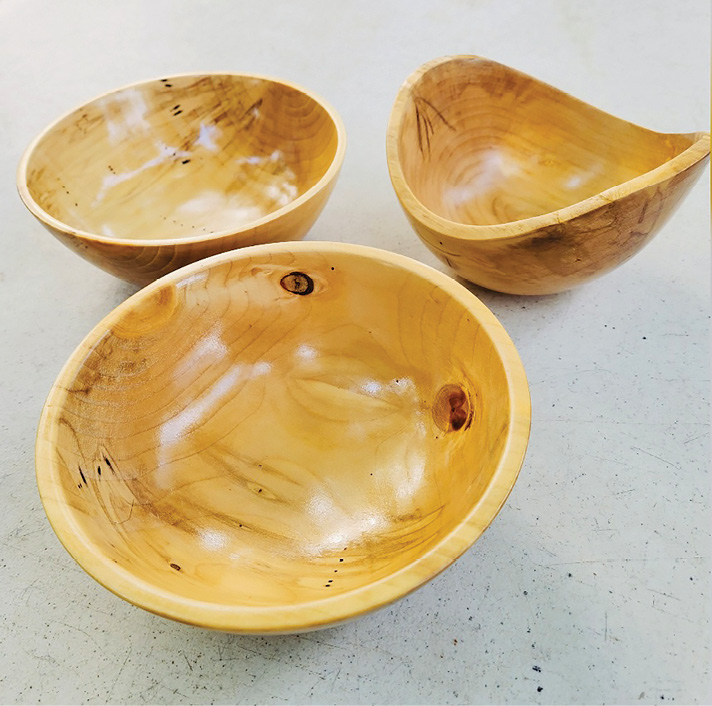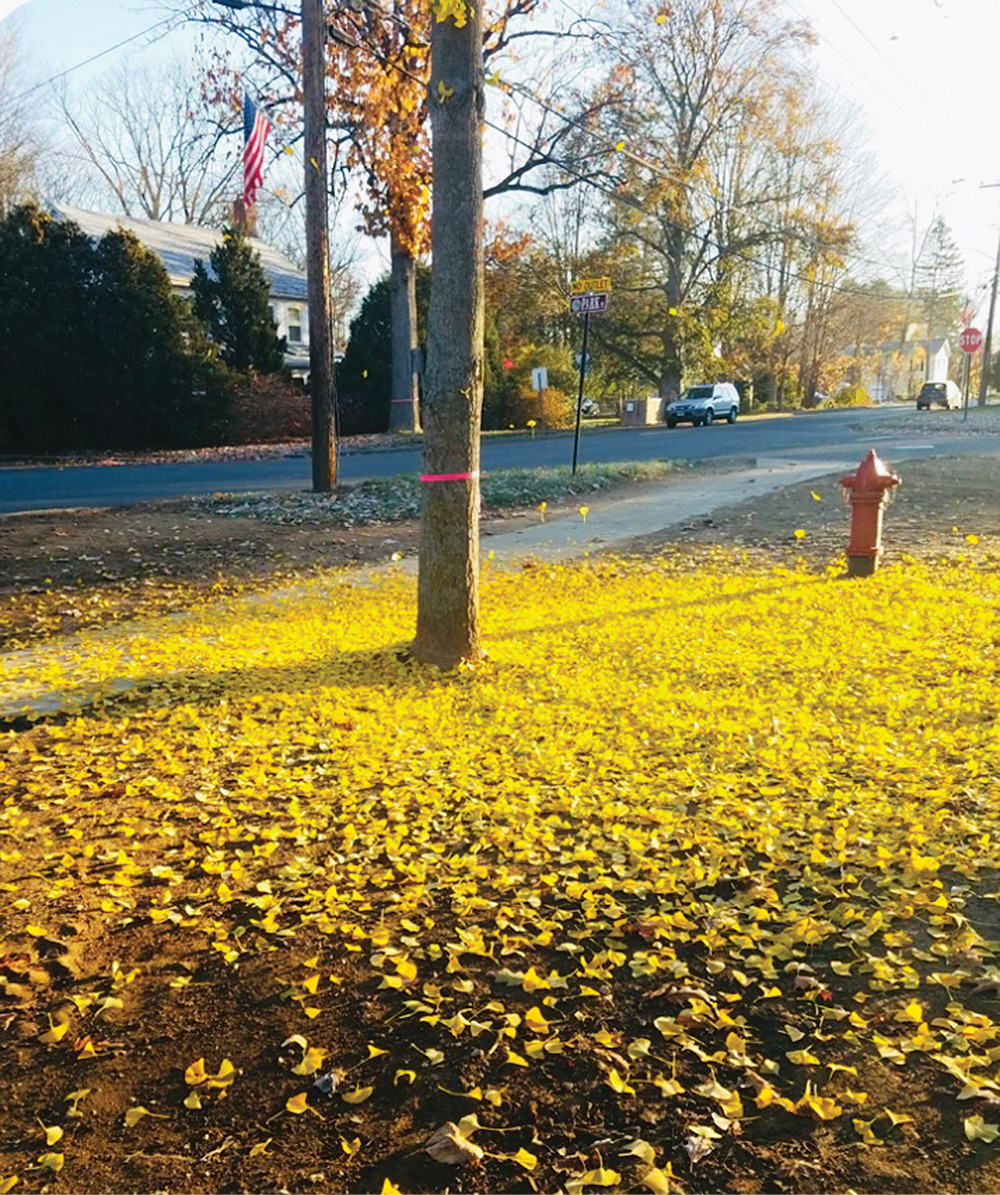For possibly up to 50 years, a beautiful ginkgo biloba graced the Granby Town Green. A stately tree that has been growing on our planet since the dinosaurs roamed, there is but the one species, biloba. It is worshipped in Japan and China, its native habitat. Many are found at old temples. The oldest existing specimen is thought to have lived more than 2,000 years.
Maybe you drove by the Town Green Ginkgo without ever noticing it or knowing what it was. Maybe you did notice it when its leaves turned a beautiful gold in the fall. Speaking of those leaves, they are unique. The two-part leaf is flat, like a butterfly’s spread wings, with prominent parallel veins.
Reminiscing about the school leaf collections most of us had to do, Granby nurseryman John O’Brien tells the story of visiting a very large ginkgo in Winsted. Recruiting two nearby teenagers to help measure it, O’Brien and the boys stood fingertip to fingertip, stretching to reach each other. “The homeowner came out and asked if we were collecting leaves for school,” notes O’Brien. “She said it happened every year.” The girth of that tree, by the way, was 18 feet.
The Town Green Ginkgo was located near the road and it thrived there as they are hardy and tough and tolerant of pollution. Luckily for those who may have spent time on the Green, Granby’s ginkgo did not have an opposite sex partner nearby, so no terrible smelling fruiting bodies were ever formed. Ginkgos belong to the category of trees that have separate sexes, like holly. Unless one of each sex is present, no fruit is formed. O’Brien relates that, during his college days in Vermont, a friend surreptitiously placed a few of these fruits in O’Brien’s parka pocket. The next morning, the entire apartment reeked of the horrible odor.
While most of our native trees develop their fall color in early to mid-October, the ginkgos usually turn their glorious gold towards the end of the month, after a few frosts occur with temperatures in the upper 20s or low 30s. While most trees drop their leaves gradually, the ginkgos drop theirs all at once, startling many first-time observers. O’Brien believes the trigger is usually a 25-degree night. At around 7 a.m. when the sun hits the leaves, they begin to softly fall like a gentle snow; by noon, they are all on the ground. O’Brien would visit the green each year as these conditions approached, in order to observe the spectacular phenomenon.
In October 2021, work commenced to widen the roads in the town intersection. A pink ribbon was tied around the Town Green Ginkgo, indicating that it was to be removed. O’Brien and fellow nurseryman Don Ford asked if they could relocate the tree to Holcomb Farm’s Tree Trail. It was impossible to accomplish the task given the parameters imposed by the state workers, so O’Brien visited each possible day of leaf drop, starting on Nov. 3. On Nov. 5, he witnessed the final leaf drop of the Granby Green Ginkgo.
On Jan. 3, 2022, the ginkgo and other trees were removed. O’Brien was there, and walking around the green, located the ginkgo logs. He knew the DOT foreman, and requested that he be allowed to take those logs. One of the contractors helped load them on his truck.
After living with the logs for a couple of months, O’Brien decided that the wood would make lovely bowls. It took a couple of years, but “I eventually found someone who could give the logs a spin,” notes O’Brien. The resulting bowls are beautiful. O’Brien has been waiting for a special occasion to make them available. The first such occasion will be Holcomb Farm’s Harvest Dinner silent auction on Oct. 23, with proceeds going to the Farm’s Tree Trail. Since that is a private event, there will be other public occasions when the bowls will be available—probably next summer during O’Brien Nursery Open Garden Days.
Although the special tree is gone from the Green, it lives on in a different, but also beautiful way.

